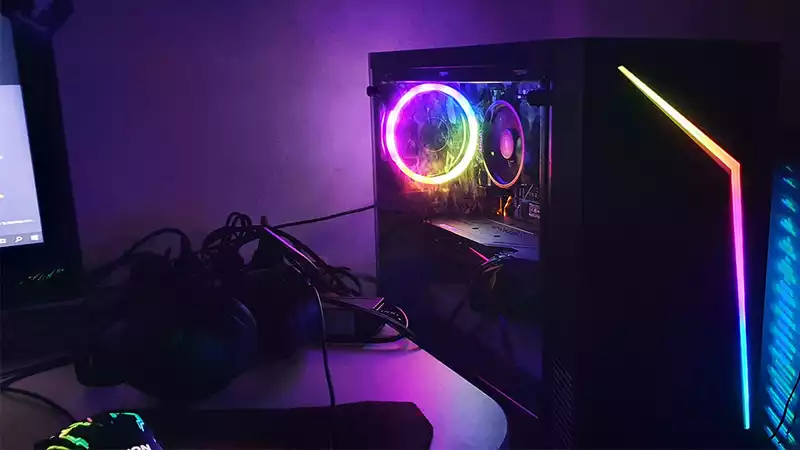The PC market is alive and well. As evidence, the latest tracking data from IDC and Gartner has been released. The former notes that "PCs remain in extremely high demand, driven in large part by gaming," while the latter points out that the PC market has experienced its fastest year-over-year growth in the past 20 years.
What about the component shortages that have rocked the entire industry? Certain silicon is in short supply relative to demand, including CPUs and GPUs (in that order, since GPUs can be integrated into CPUs), which are the building blocks of all PCs. Therefore, the numbers are partially skewed.
According to IDC, global shipments of PCs (desktops, laptops, and workstations) in the first quarter of 2021 grew by an impressive 55.2% y/y. However, the main reason for the "exceptionally good YoY growth" was the PC shortage at the beginning of the pandemic.
However, these numbers are not entirely misleading. The pandemic is also to blame for the very strong demand for PCs over the past year. The surge in telecommuting and home-based education has increased the need for PC hardware.
IDC even went so far as to say that "a fundamental shift is taking place around PCs," resulting in a more positive outlook for the next few years. The market research firm also cited gaming, first and foremost, as the reason for the increased demand for PCs. [The PC market's continued resurgence and rising average selling prices (ASPs) have been driven primarily by the growth of gaming, the need for more powerful notebooks in the enterprise, and increased demand for touchscreens in the education sector," IDC said.
Another leading market research firm, Gartner, made a similar observation regarding the impact of the pandemic on PC shipments. Gartner recorded a 32% increase over the previous year, but this may not take workstations into account.
"This growth should be viewed within the context of two unique factors: market constraints from the pandemic and the current global semiconductor shortage," said Mikako Kitagawa, research director at Gartner. 'If it weren't for the shipping disruptions in early 2020, growth this quarter might have been much lower. However, semiconductor shortages are now again adversely affecting the supply chain, with shipping lead times for some PCs as long as four months."
"The supply chain is still in a state of flux."
The supply chain is also in a state of flux.
Still, Gartner agreed that "PC demand may remain strong even after home restrictions are eased."
As for component shortages, the situation is ongoing; IDC says the problem is likely to continue for the remainder of 2021, and Gartner notes that lead times for some PCs can be up to four months due to the impact component shortages are having on the supply chain
and that the supply chain has been impacted by component shortages.

Comments